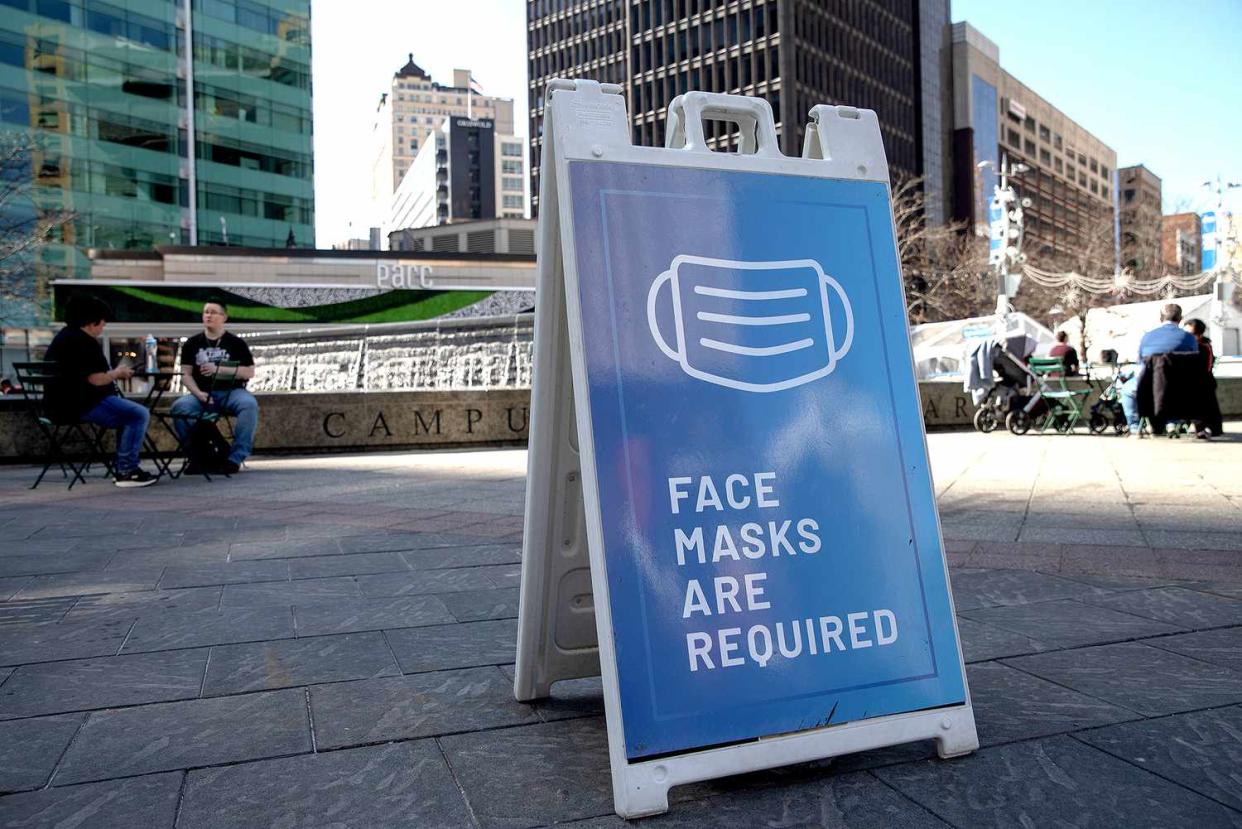CDC Recommends Face Masks Again in New York City, Los Angeles as COVID Cases Rise

- Oops!Something went wrong.Please try again later.
Emily Elconin/Bloomberg via Getty Images
Face masks may be returning as some communities are experiencing a rise in COVID-19 cases and hospitalizations.
The U.S. Centers for Disease Control and Prevention warned Thursday that the recent spike of COVID cases could be high enough to warrant face masks in indoor settings to prevent the spread of the virus.
According to a weekly report from the agency, several communities are now rated "high" for COVID levels, including New York City and Los Angeles.
Earlier this month, New York City health officials sent out a notice urging all schools to return to having students wear face masks, even if vaccinated. And Los Angeles officials said they planned to do the same if COVID cases continue to rise.
Never miss a story — sign up for PEOPLE's free daily newsletter to stay up-to-date on the best of what PEOPLE has to offer, from juicy celebrity news to compelling human interest stories.
Back in February, the CDC dropped their nationwide mask recommendation and instead left the decision up to local governments, advising only those with "high" COVID transmission levels to retain mask mandates. The agency said the mask mandate was no longer needed for areas with "low" or "medium" case rates.
"We want to give people a break from things like mask wearing when our levels are low and then have the ability to reach for them again," CDC Director Dr. Rochelle Walensky said at the time. "Should things get worse in the future, we, as the CDC, will continue to follow the science and epidemiology to make public health recommendations and guidance."
Now, the CDC has been monitoring the significant increase of respiratory illnesses, including COVID, the flu, and RSV, which has caused a shortage of hospital beds and medications across the nation.
Data from the CDC revealed that flu season arrived more than a month earlier than usual. Flu-related hospitalizations have not been this high at this point in the season since the H1N1 swine flu pandemic in 2009.
"It's unusual, but we're coming out of an unusual COVID pandemic that has really affected influenza and other respiratory viruses that are circulating," Lynnette Brammer, epidemiologist and head of the CDC's domestic influenza surveillance team, told The Washington Post.
Brammer added that vaccines are well matched against the circulating respiratory viruses, urging people to get vaccinated as soon a possible.

